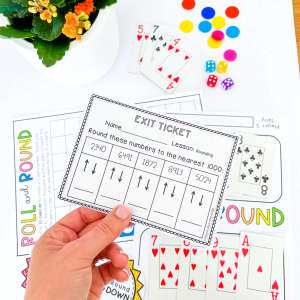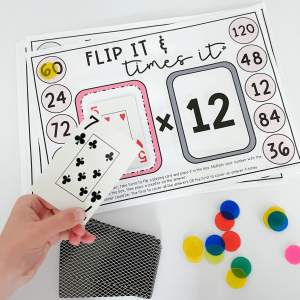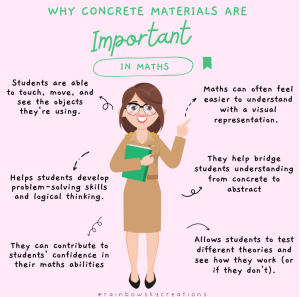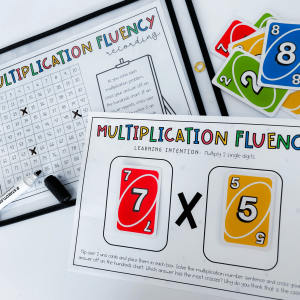Do you ever go to tackle your Maths lessons and think to yourself, ‘I’m not doing a very good job at this!
We have been there (with Maths and other subjects too). We all have our ups and downs, and sometimes we are in the flow of one Key Learning Area over others.
Often, teachers make common mistakes when lessons flop, or students are disengaged. By being aware of these common mistakes, you can take steps to avoid them and create a more effective and engaging learning experience for your students.
Here are 5 common mistakes we see teachers make when teaching Maths:
1. Moving too quickly
The curriculum is jam-packed… so it can be super tempting to move through the content at a quicker pace to get through it all.
You may assume that students understand a concept or skill (or at least a surface-level understanding) and move on too quickly, without giving students enough time to master the material.
This can lead to frustration and confusion for students, who may then struggle to keep up with the pace of the following lessons and concepts.
Solution: Take it slow. Doing quick checks (hello exit tickets) and differentiation are your best friends when it comes to catering for your students and helping them master concepts at a deeper level.
2. Focusing on rote memory rather than understanding
We know that fluency is important – we have written many blog posts about it and how to achieve it! However, students need to combine fluency with a deeper understanding of the underlying concepts.
We don’t want students simply memorising facts without knowing how they work because this will lead to them struggling to apply those concepts in different contexts.
Solution: Explicitly teach the concept first. For example: Work on multiplication by students making groups and arrays with concrete objects. Then introduce the algorithm and use hands-on materials to visually represent the algorithm. You could also begin to link skip counting to the concept of multiplication. Do all of this before you ask students to rattle off their times table facts.
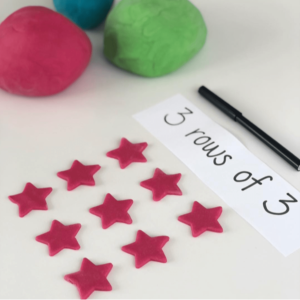
3. Neglecting to differentiate
We know differentiation is daunting. However, differentiation means you are able to meet the needs of individual students in your classroom. No differentiation can lead to students struggling or being left behind, and/or students that are excelling feeling bored or unchallenged.
Solution: We love Maths groups (or Maths centres / Math workshop) to help authentically differentiate lessons. They allow us to meet and work closely with every student in the class (which helps in identifying gaps in their learning, or if they need to be challenged). Read more about Maths Groups here.

4. Death by worksheet ☠️
Teachers can often rely too heavily on worksheets as a way of assessing student understanding and providing extra practice about a concept taught.
While worksheets can be useful at times, they should not be the only way that students engage with math concepts and skills. We know students learn by engaging in hands-on tasks and that pedagogy doesn’t match with students at a desk, completing a worksheet.
Solution: Introduce games to play to work on the concepts you are teaching. Students love them and don’t even realise they are learning. Again, Maths aroups are our go-to, especially for reducing the use of worksheets, because they allow for a range of different tasks to be happening at the one time. This means you don’t need a set of games or materials for the entire class, you only need a handful for a small group.
5. Lack of opportunities for hands-on learning
Following on from the point above, kids need hands-on learning experiences.
When we don’t provide enough opportunities for students to engage in hands-on, concrete learning experiences, they miss out on being able to see and touch the materials, and develop problem-solving skills as well as logical thinking in Maths.
Hands-on learning is important for all age groups (say again, for the people at the back!)
Solution: When starting a new concept or unit of work, think about ways you can engage students in hands-on learning.
- What concrete materials could you use?
- What games could you play?
- How can students show their learning without needing their workbook?
If you need some inspiration (or simply some done for you tasks, check out these).
At the end of the day, we know you are doing your best! See if you can make any of these suggested changes in your classroom (try one at a time), and let us know if they make any difference!!!
Before you go, we have a FREE Maths Workshop these holidays!
This workshop focuses on trying different activities using concrete materials in your classroom (with students of all ages… yep, even Year 6!)
The workshop is only open during the April school holidays, and is completely FREE.
Click this link to sign up.
What to read next:
Check out this free place value game
Concrete materials we use daily in Maths
3 things you need to stop doing as a new teacher

